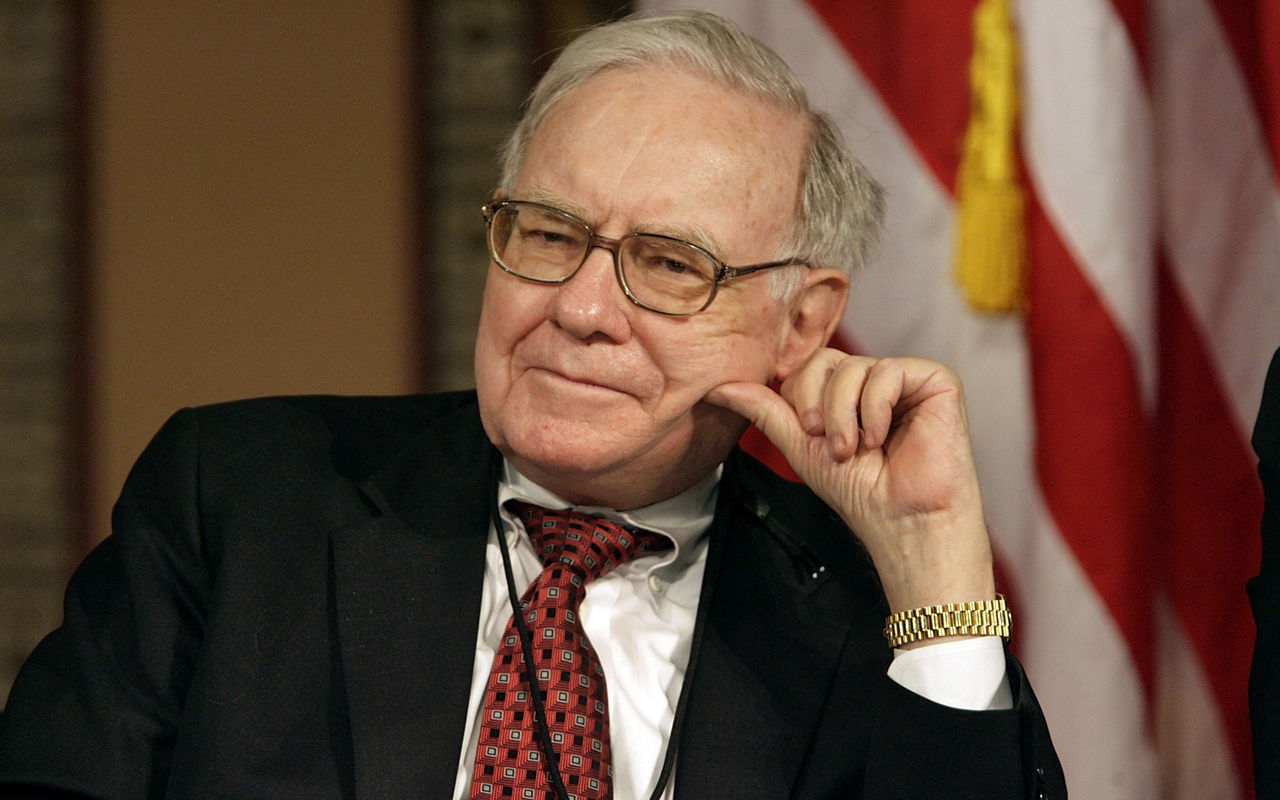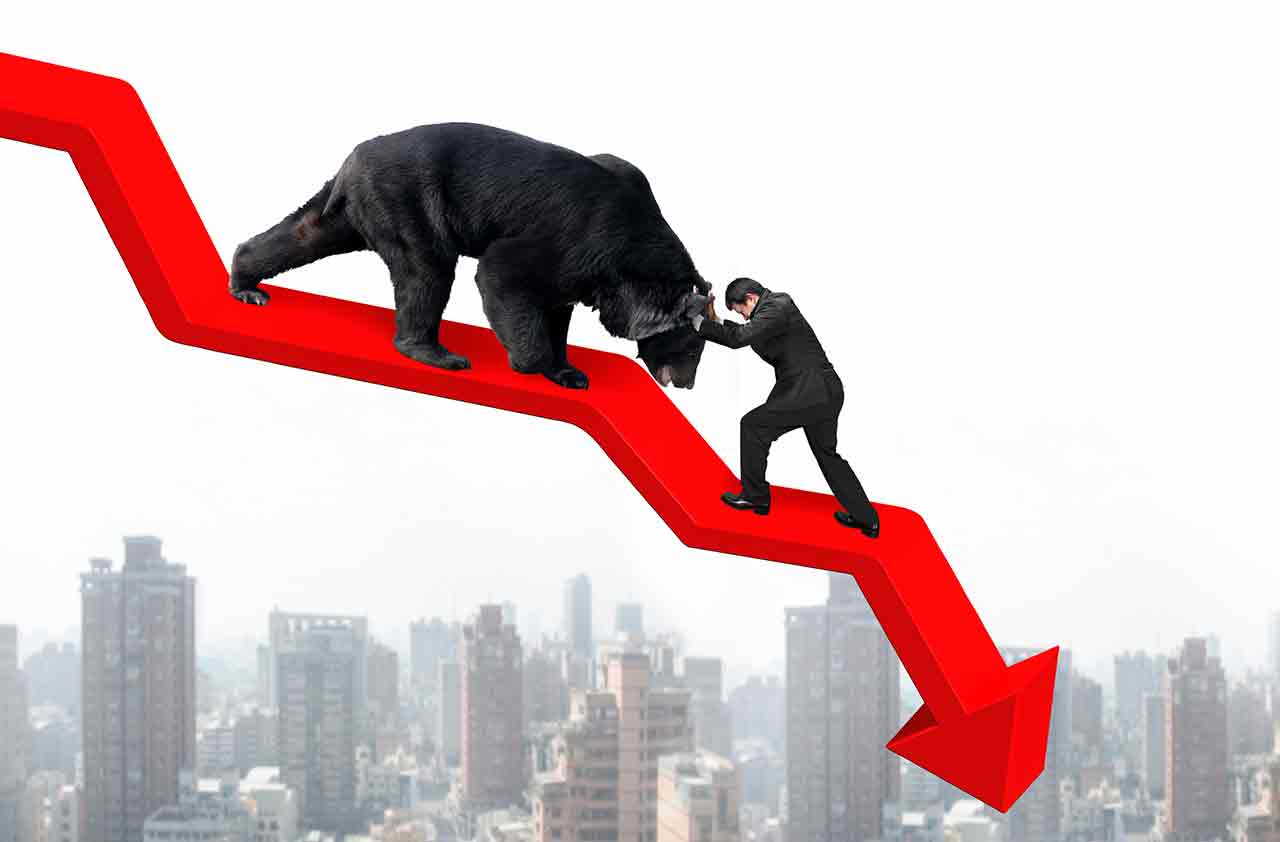Why I Don't Buy Stocks
It's nearly impossible to beat the market – but it is cheap and easy to match it.


Profit and prosper with the best of Kiplinger's advice on investing, taxes, retirement, personal finance and much more. Delivered daily. Enter your email in the box and click Sign Me Up.
You are now subscribed
Your newsletter sign-up was successful
Want to add more newsletters?

Delivered daily
Kiplinger Today
Profit and prosper with the best of Kiplinger's advice on investing, taxes, retirement, personal finance and much more delivered daily. Smart money moves start here.

Sent five days a week
Kiplinger A Step Ahead
Get practical help to make better financial decisions in your everyday life, from spending to savings on top deals.

Delivered daily
Kiplinger Closing Bell
Get today's biggest financial and investing headlines delivered to your inbox every day the U.S. stock market is open.

Sent twice a week
Kiplinger Adviser Intel
Financial pros across the country share best practices and fresh tactics to preserve and grow your wealth.

Delivered weekly
Kiplinger Tax Tips
Trim your federal and state tax bills with practical tax-planning and tax-cutting strategies.

Sent twice a week
Kiplinger Retirement Tips
Your twice-a-week guide to planning and enjoying a financially secure and richly rewarding retirement

Sent bimonthly.
Kiplinger Adviser Angle
Insights for advisers, wealth managers and other financial professionals.

Sent twice a week
Kiplinger Investing Weekly
Your twice-a-week roundup of promising stocks, funds, companies and industries you should consider, ones you should avoid, and why.

Sent weekly for six weeks
Kiplinger Invest for Retirement
Your step-by-step six-part series on how to invest for retirement, from devising a successful strategy to exactly which investments to choose.
Most people should not buy individual stocks.
That might sound strange or even hypocritical coming from someone who writes about stocks for a living. After all, a big part of my job is dedicated to helping readers identify stocks that will beat the market.
To that end, I consult analysts' research and recommendations, look at the usual suspects of fundamentals and valuations and technicals, and try to stick to a sort of "wisdom of crowds" methodology to try to help patient investors get the most out of their portfolios.
From just $107.88 $24.99 for Kiplinger Personal Finance
Become a smarter, better informed investor. Subscribe from just $107.88 $24.99, plus get up to 4 Special Issues

Sign up for Kiplinger’s Free Newsletters
Profit and prosper with the best of expert advice on investing, taxes, retirement, personal finance and more - straight to your e-mail.
Profit and prosper with the best of expert advice - straight to your e-mail.
But as for myself? I index.
Here's why.
It's almost impossible to beat the market for any sort of sustained period of time. You might get lucky for a year or two; maybe three even. But you are probably not the next Warren Buffett. I know for certain that I'm not.
How could I be when the vast majority of professional money managers can't beat their benchmarks?
You can see this sad fact for yourself by reading Standard & Poor's SPIVA Scorecard, which tracks the performance of actively managed mutual funds. In 2022, a year in which the S&P 500 generated a total return of -18% – or one of the worst years ever for stocks – 51% of all U.S. large-cap active mutual funds failed to beat the broader market.
Incredibly, 2022 was actually a great year for active management compared to how it usually fares. In 2021, 85% of domestic large-cap funds came up short. And over the past 20 years? It's a wipeout. More than 92% of all U.S. active funds underperformed the S&P Composite 1500. Almost 95% of all U.S. large-cap funds trailed the S&P 500 over the past 20 years.
There goes your retirement.
Mind you, these aren't financial journalists who are failing to produce returns that at least track a cheap S&P ETF. We're talking about full-time professionals, often working in teams with access to proprietary research and tools, industry conferences, meetings with CEOs and all that good stuff.
True, sometimes you'll hear people argue that since most fund managers can't beat their benchmarks, the solution is simple: just invest with the ones who can. There's a problem with that too. As SPIVA has documented, hot managers don't stay hot for long. Keeping a streak of market-beating years alive is called "persistence," and it's rare.
Before we pull out the pitchforks for active management, please know this: it's not really their fault that most of them can't beat the market most years. You also can't blame them for flaming out after a hot run.
Why active managers underperform
First of all, there are a bunch of structural things that handicap professional managers. I don't want to get into the weeds here, but one example is the issue of being forced to sell your winners.
It works like this: active funds are usually required by their own rules to maintain a highly diversified portfolio. If Nvidia (NVDA) stock soars and grows to become more than, say, 3% of the fund, the manager has to cut back on the position in order to keep NVDA's portfolio weight in check. In other words, the manager has to sell NVDA at precisely the time she would probably most like to be buying NVDA.
Making matters worse, the cash from the NVDA sale then has to be deployed somewhere else – and it probably won't be in a stock that's almost tripled in the past 52 weeks.
Diversification is generally a good thing, but you can see how it can actually hamper a fund's returns. Note that Warren Buffett's stock portfolio has always been highly concentrated. (He likes to say that diversification is for people who don't know what they're doing.) Apple (AAPL) alone accounts for nearly half of Berkshire Hathaway's (BRK.B) equity investments. Buffett's top five holdings comprise about 78% of Berkshire's portfolio value.
Berkshire Hathaway's stock returns have more than doubled those of the S&P 500 since 1965. Buffett clearly knows what he's doing. It should go without saying that most of us are not Warren Buffett.
As for why hot managers suddenly go cold? There are a bunch of reasons. One of the biggies is that a lot of managers just happen to catch on to the right trends at the right time. One could argue that Cathie Woods' ARK Innovation ETF (ARKK) is a recent example of this phenomenon.
In other cases, it's true that fund managers with a real talent for spying bargains do exist. But these folks too often become victims of their own success. Investors chase hot managers the same way they chase hot stocks. Once a manager becomes financial-world famous – with TV hits on CNBC and interviews in Barron's – client assets start pouring in. It should be a nice problem to have, except that a manager might find she has a lot more cash to deploy than she does good ideas of where to put it.
Most stocks can't beat the market
But here's the No 1 reason why most professionals can't beat the market: it's because most stocks can't beat the market.
We know this thanks to the good work of Hendrik Bessembinder, a finance professor at the W.P. Carey School of Business at Arizona State University. He found that between 1990 and 2020, more than 55% of all U.S. stocks underperformed risk-free one-month U.S. Treasury bills.
These stocks didn't just fail to beat the market. They failed to beat, like, cash.
Even more depressing, the professor found that the entirety of the $76 trillion in net global stock market wealth created over that 30-year period was generated solely by the top-performing 2.4% of stocks.
If you can find the needle in the haystack, go for it. But what you are most likely to reap is a heap of opportunity cost.
These facts won't keep me from writing about stocks as honestly and analytically as possible. Readers want stock picks and I love helping them find them. But the data are the data. Indexing makes the most sense for most people, and there's certainly no shortage of inexpensive S&P 500 ETFs.
If nothing else, at least readers can rest assured that I don't have any conflicts of interest when I highlight, say, the best dividend stocks for dependable dividend growth.
More columns by Dan Burrows
Profit and prosper with the best of Kiplinger's advice on investing, taxes, retirement, personal finance and much more. Delivered daily. Enter your email in the box and click Sign Me Up.

Dan Burrows is Kiplinger's senior investing writer, having joined the publication full time in 2016.
A long-time financial journalist, Dan is a veteran of MarketWatch, CBS MoneyWatch, SmartMoney, InvestorPlace, DailyFinance and other tier 1 national publications. He has written for The Wall Street Journal, Bloomberg and Consumer Reports and his stories have appeared in the New York Daily News, the San Jose Mercury News and Investor's Business Daily, among many other outlets. As a senior writer at AOL's DailyFinance, Dan reported market news from the floor of the New York Stock Exchange.
Once upon a time – before his days as a financial reporter and assistant financial editor at legendary fashion trade paper Women's Wear Daily – Dan worked for Spy magazine, scribbled away at Time Inc. and contributed to Maxim magazine back when lad mags were a thing. He's also written for Esquire magazine's Dubious Achievements Awards.
In his current role at Kiplinger, Dan writes about markets and macroeconomics.
Dan holds a bachelor's degree from Oberlin College and a master's degree from Columbia University.
Disclosure: Dan does not trade individual stocks or securities. He is eternally long the U.S equity market, primarily through tax-advantaged accounts.
-
 Quiz: Do You Know How to Avoid the "Medigap Trap?"
Quiz: Do You Know How to Avoid the "Medigap Trap?"Quiz Test your basic knowledge of the "Medigap Trap" in our quick quiz.
-
 5 Top Tax-Efficient Mutual Funds for Smarter Investing
5 Top Tax-Efficient Mutual Funds for Smarter InvestingMutual funds are many things, but "tax-friendly" usually isn't one of them. These are the exceptions.
-
 AI Sparks Existential Crisis for Software Stocks
AI Sparks Existential Crisis for Software StocksThe Kiplinger Letter Fears that SaaS subscription software could be rendered obsolete by artificial intelligence make investors jittery.
-
 How I'm Going to Invest My Mega Millions Lottery Jackpot
How I'm Going to Invest My Mega Millions Lottery JackpotThe odds of winning the Mega Millions lottery are effectively zero, but here's how I'm investing my fortune should I hit the jackpot.
-
 Four Random Facts and Thoughts About Warren Buffett
Four Random Facts and Thoughts About Warren BuffettIf I love Warren Buffett so much why don't I just marry him?
-
 Investing in Gold Is Dumb
Investing in Gold Is DumbStocks are better than gold for both generating wealth and offering protection against inflation.
-
 What's So Scary About a Mega-Cap Tech Bull Market?
What's So Scary About a Mega-Cap Tech Bull Market?Bears say the market can't keep rallying when only five mega-cap tech stocks are driving returns, but history suggests otherwise.
-
 We Are Not in a Bull Market
We Are Not in a Bull MarketIt takes more than a 20% gain off the low to proclaim the beginning of a new bull market.
-
 Amy Domini on the Secrets of Sustainable Investing
Amy Domini on the Secrets of Sustainable InvestingESG An ESG pioneer says finding good corporate citizens is the best way to make money.
-
 Bitcoin Halving: What Does It Mean for Investors?
Bitcoin Halving: What Does It Mean for Investors?Technology 'Mining' for this cryptocurrency just became a lot more expensive
-
 How to Handle a Bear Market
How to Handle a Bear MarketInvestor Psychology If you’ve got to take action, boost your savings rate or scout for mispriced securities. And check that your portfolio is in line with your goals.